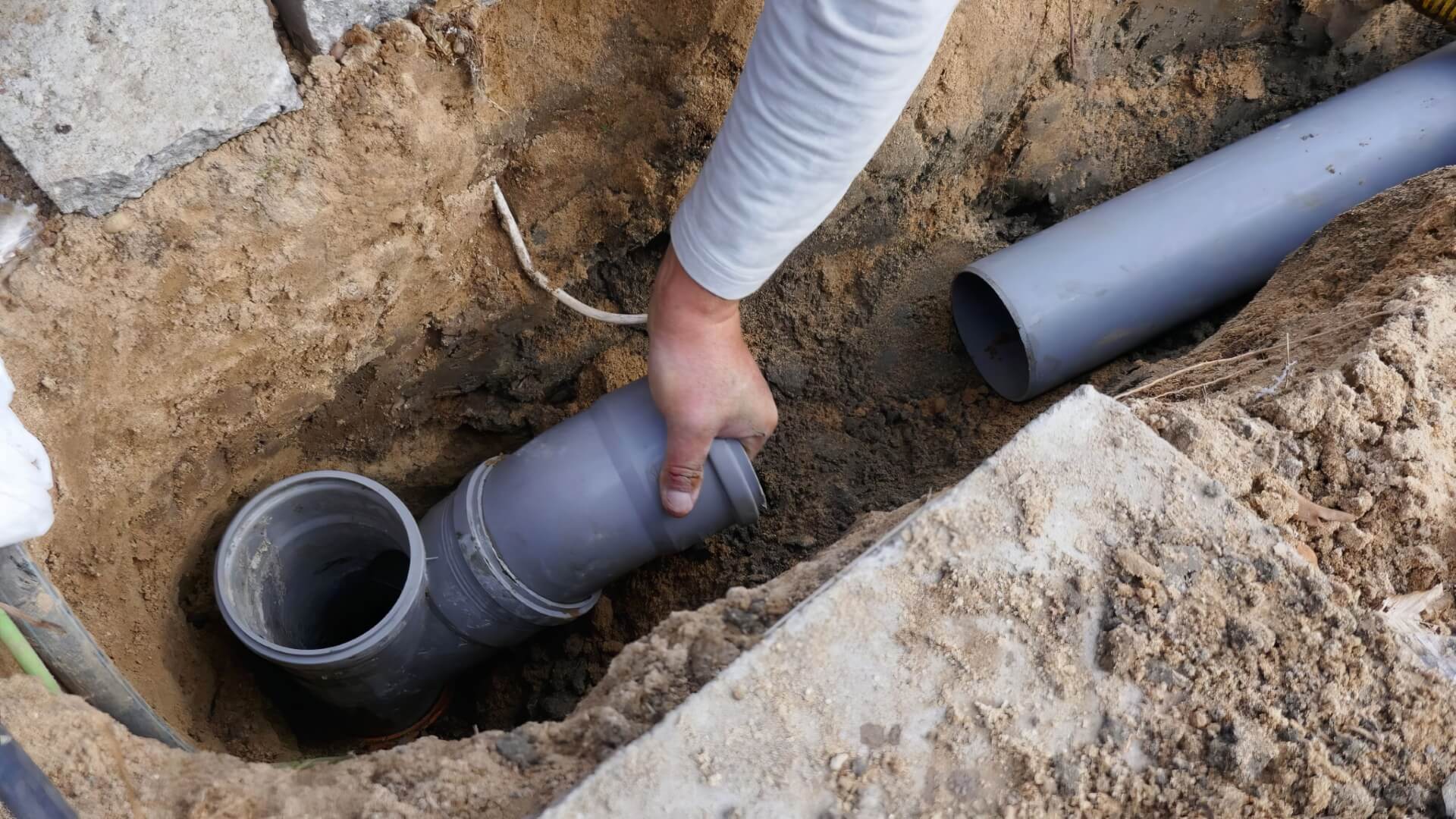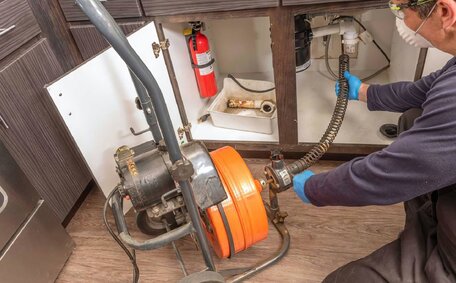Introduction to Natural Gas
Natural gas is a fossil fuel that is widely utilised in homes and businesses for cooking heating, and other applications. It is composed primarily of methane and, as a source of clean natural gas, it is the cleanest burning fossil fuel, producing more than fewer air pollutants and levels carbon dioxide emissions than other fossil fuels when burned.
Safe gas distribution of natural gas is secured through pipelines into buildings, reaching your gas appliances such as furnaces, water heaters, and stoves. It can also fuel generators and various industrial processes where clean natural gas has been produced. Compared to other fuel sources, natural gas is affordable, abundant, and efficient.
Even though natural gas is safe with the right infrastructure, awareness of the dangers natural gas leaks can pose is critical, as they can be significantly hazardous. It is important to find out how to ensure your safety by recognising a leak and taking appropriate action if you suspect one in your home business.
The Benefits and Wide-Scale Use of Natural Gas
Natural gas features many benefits, and its extensive use across various applications can sometimes overshadow its potential dangers. Some key advantages of natural gas include:
- It is highly efficient, with over 90% efficiency in converting the energy into usable heat in modern appliances.
- Burning natural gas reduces particulate matter, creating fewer air pollutants like nitrogen dioxide compared to coal or oil.
- As gas burned, it emits nearly 50% less carbon dioxide compared to coal, when used to produce electricity.
- How we can easily transport gas via used in pipelines straight into homes and businesses.
- Natural gas is a reliable and gas safe source available on demand.
- It is one of the most affordable and cost-effective domestic clean energy sources.
- Use natural gas appliances such as gas stoves, ovens, fireplaces, and hot water systems provide convenient and safe solutions for homes in Drummoyne, Sydney.
The manner in which we deploy natural gas plays a vital role across several sectors, contributing to about 23% of the total energy mix in the U.S. Natural gas plays a vital role across several sectors.
Natural gas also fuels vehicles and serves as an essential feedstock in manufacturing industries.
With approximately 38,730 terajoules of natural gas used by home businesses in Australia’s eastern states in 2021, it continues to be utilised at ever greater levels across the country.
Assessing the Safety and Risks of Natural Gas
Natural gas, when properly handled, generally remains safe, but Safe do diligence and preventive measures can significantly reduce your system’s risk of leaks. However, there are some serious health risks to be aware of.
Being odourless and colourless naturally, an added natural gas “rotten egg” scent helps with how to detect leaks through smell.
If you smell gas, with its distinctive odour, you should evacuate the area, avoid using any electronics or phones, and contact your fire department immediately so the source of the leak can be found and fixed.
If you still smell gas and inhaled in substantial amounts, warnings from scientist PSE Healthy caution that exposure can cause natural gas safe poisoning with symptoms like dizziness and nausea. Prolonged exposure could potentially lead to long-term neurological and respiratory issues, resembling natural gas poisoning, according to experts at the Chan School Public Health. However, experts conducting safety checks remind us that natural gas dissipates quickly when leaks happen as it is not heavier than air.
Another risk with lp gas leaks is an explosion if concentrations build up and encounter an ignition source. Even though appliances may seem inactive, to reduce the impact on climate change, ensure gas appliances are properly turned off when not in use.
While the percentage of clean natural gas in overall U.S. air pollution is minimal relative to other fossil fuels, in some cases, methane leaks become potent greenhouse gases. Maintaining infrastructure with insights from PSE Healthy Energy helps minimise environmental impacts.
By adopting gas safety tips and using appliances properly, risks diminish while still reaping the benefits and conveniently smell natural gas thanks to added odorants.
Common Myths vs Facts About Natural Gas Safety
When it comes to natural gas safety, there are some common myths that persist despite evidence to the contrary. Here are some prevalent misconceptions and the factual reality:
Myth: You can smell a natural gas leak from far away
Fact: The mercaptan odorant added to natural gas can only be smelled when you are relatively close to the leak’s source. It does not travel long distances.
Myth: Natural gas leaks always make a hissing sound
Fact: Smaller leaks may not produce an audible hissing noise. Only relying on sound can give a false sense of security.
Myth: Gas appliances like stoves don’t need regular maintenance
Fact: Yearly inspections by a licensed gas professional help ensure that issues like faulty connectors or pilot lights stay in check before dangerous leaks occur.
Myth: Natural gas is toxic and can cause poisoning
Fact: Natural gas should normally be non-toxic, though in extremely high concentrations it might displace vital oxygen for breathing. The gas itself does not poison the body.
Myth: Natural gas is highly flammable and explodes easily
Fact: Natural gas requires the right fuel source ratio plus an ignition source to burn. Appliances are designed with many fail-safes to prevent potential ignition.
Stay vigilant to do gas leak checks and engaging qualified service personnel for installation and maintenance – this goes a long way towards utilising natural gas safely. Don’t let questionable information compromise making sound judgments regarding natural gas risks.
Health Effects and Concerns Related to Natural Gas Exposure
Exposure to unburned natural gas can have adverse effects on indoor air quality, particularly symptoms natural gas in enclosed spaces with poor ventilation. Symptoms like dizziness, fatigue, nausea, and irritation may occur after short-term exposure to moderate levels.
More dangerous is the threat of asphyxiation and oxygen deprivation if large volumes of leaking gas accumulate and displace breathable air. Loss of consciousness or even death can occur rapidly in these oxygen-deficient environments.
According to studies from the School Public Health, long-term low-level exposure poses risks like lung, heart, and brain damage due to chemicals like benzene and formaldehyde present in natural gas. Asthma and respiratory issues may also develop over time.
Of critical concern is when incomplete combustion leads to carbon monoxide production. Being hazardous air pollutant and odourless, carbon monoxide binds to haemoglobin in the blood, reducing oxygen supply in the body. Exposure leads to serious symptoms indicative of natural gas inhalation, such as dizziness and chest pain, which can progress to more severe conditions.
Ensuring proper ventilation, appliance installation, maintenance checks, and leak detection are vital measures in preventing the health hazards associated with natural gas exposure in homes and workplaces.
Tips for Safe Natural Gas Appliance Installation and Maintenance
Properly installing and rigorously maintaining your appliances is vital in preventing carbon monoxide poisoning in your home. Here are some key tips:
- It is important to select your gas professional and technician with care for all new appliance installations or pipework.
- You should only operate gas appliances with the adequate ventilation and clearance specified by manufacturers.
- Regular check your of utility appliances and connections for leaks are vital, using leak detection spray or soapy water.
- Pay attention to signs of improper combustion like soot buildup, irregular flames or the smell of rotten eggs which could indicate a dangerous carbon monoxide leak.
- Arrange yearly inspections by qualified technicians to check piping, fittings and components for wear and tear or issues.
- Clean burners, valves, filters and other parts periodically as per usage and the user manual.
- If going away for extended periods, consider switching off main gas supply where possible.
- Please check your gas meter location and emergency gas shutoff valve are located and remember to dial before dig in case leaks are suspected.
- Always supervise gas appliances when in use and make sure to turn off gas properly when not needed.
Following these safety tips and getting regular servicing done professionally helps minimise risks when using natural gas appliances in your Drummoyne home.
Licensed Professionals Should Install Gas Appliances
It is critical to know what do when any new gas appliances, pipework or gas lines in Australian homes are installed, ensuring that licenced gas fitters do the work to meet strict safety standards.
Gas fitting in NSW involves complex technical skills and must adhere to regulations outlined by SafeWork NSW. Improper appliance or pipe connections can lead to disastrous consequences. Thus, collaborating with a reputable gas association is vital for taking precautions against gas faults before any dig work to ensure installations are fault-free.
The team at Drummoyne Plumbing, your source for certified and insured gas fitting talent, has undergone extensive training to perform safe and compliant gas jobs in your home.
Whether you need a new gas cooktop hooked up or considering an upgrade to efficient gas heaters, our expert team can handle all installations to the highest industry standards.
Trust our team for reliable servicing and repairs on appliances, and explore our video resources for more about safety tips. Trust only fully licenced gas professionals for highly specialised tasks like gas heating installations and repairs.
Contact Drummoyne Plumbing on 1300 349 338 or email us to learn more about our gas fitting services keeping Sydney households safe.
Regular Maintenance Ensures Continued Safe Operation
Performing regular maintenance and inspections is crucial to ensure natural gas appliances operate safely on an ongoing basis.
A yearly inspection by a licenced technician checks components for corrosion, obstructions, leaks, improper combustion and other issues which can compromise safety. They will also test pressure and heat input/output levels for optimal performance.
Some simple maintenance you can do includes:
- Visually checking appliance pipes and connections for any cracks or damage.
- Cleaning dust or debris off burners and pilot light assemblies.
- Vacuuming soot out of fireplaces before each winter season.
- Replacing air filters as needed to support proper airflow.
Neglecting maintenance checks frequently leads to compromised health safety with dangerous gas leaks or appliance breakdowns and inefficiencies over time. Stay on top of servicing your natural gas appliances to derive continued benefit safely.
The qualified gas technicians at Drummoyne Plumbing can handle all your maintenance and inspection needs to keep household gas appliances running reliably for years on end.
How to Detect a Natural Gas Leak
Quickly detecting a natural gas leak is imperative for the safety of your house, and swift detection can prevent serious hazards. Here are key signs to look and listen for:
- Rotten Egg Smell - A distinctive sulphur-like odour added to alert people to leaks. Trust your nose if you notice even a faint whiff.
- Hissing Sound - Leaking gas may create a high-pitched hiss or roaring noise.
- Dead Vegetation - Unusual patches of dead plants or grass may indicate underground leaks.
- Bubbles - Applying soapy water near appliances and pipes will produce bubbles at any leak sites.
- Jumping Flames - Irregular burner flame patterns could signify improper gas flow.
- Dirt Blowing - Suspicious dirt or debris blowing from a hole or crack on your property may be caused by a leak displacing soil.
If you suspect a leak, evacuate people and pets from the area immediately. Call emergency services so gas technicians can inspect for breaches and make needed repairs before resuming use.
Avoid using any phones, electronics, or lighting nearby, and if safe, turn off your gas at the main. Shut off your main gas supply valve if accessible. Open exterior doors and windows if safe to ventilate the space.
What to Do in Case of a Natural Gas Leak or Emergency
If you suspect a natural gas leak or emergency:
- Evacuate everyone from the area immediately and move to a safe location upwind of the leak.
- Do NOT turn on or off any lights, appliances, garage doors or vehicles, as an electric spark could ignite the gas.
- If it’s safe, crack open doors and windows to introduce fresh air and ventilate the area, but not if it risks spreading gas to nearby homes.
- Use the shutoff valve to cut the main gas supply if you can access it safely. Use an adjustable wrench - do not use any electric switches or tools.
- Call 000 from a safe location to request the fire brigade and gas emergency technicians. Do not assume someone else has reported it.
- Do not re-enter the area until emergency crews give the all-clear. They will use gas detectors to locate the leak source and make repairs.
For minor leaks, evacuate everyone and call a licenced gas fitter immediately for assessment and repair. Never ignore the rotten egg smell - early leak detection prevents disasters.
In any gas leak event, residents’ safety comes first. Drummoyne Plumbing’s technicians are fully trained in emergency leak response in accordance with SafeWork NSW standards.






